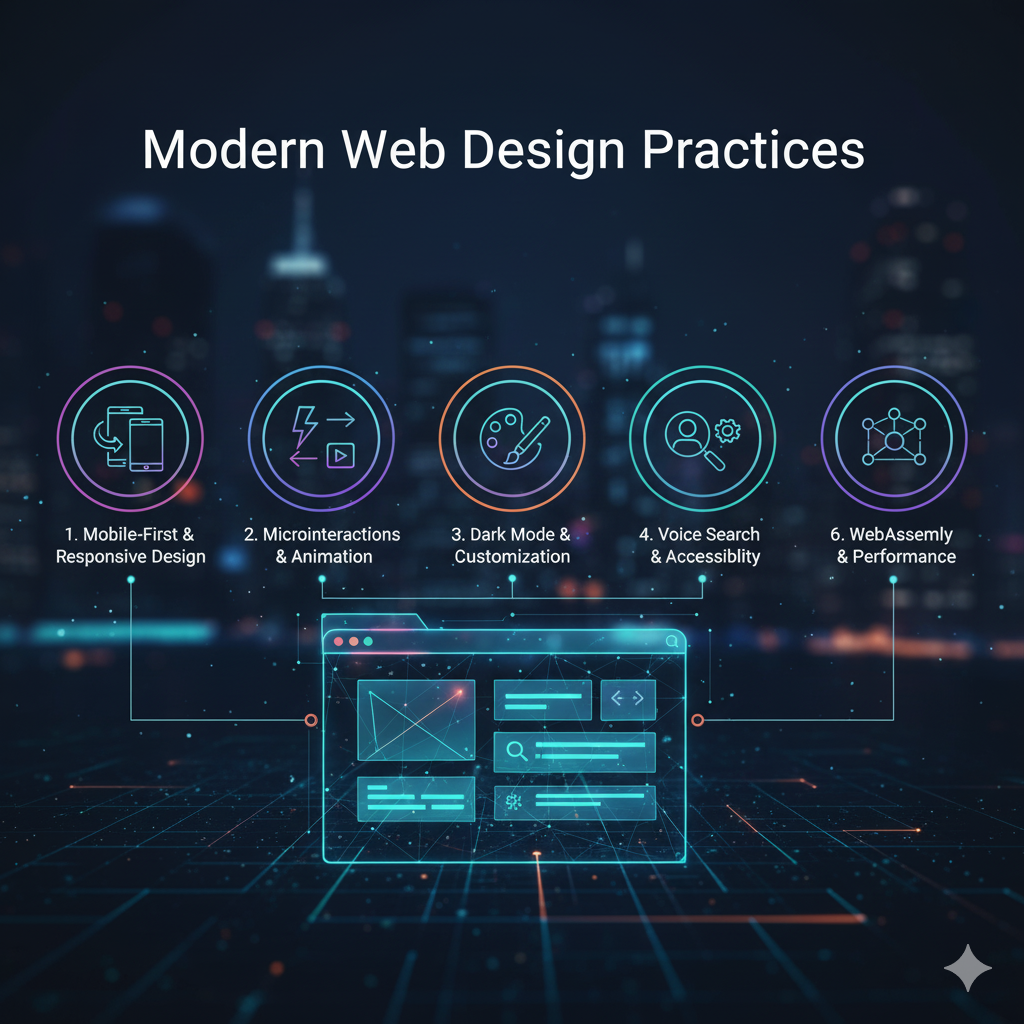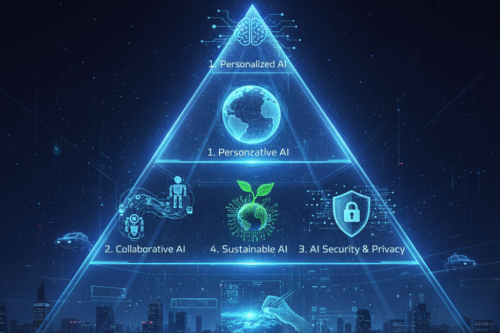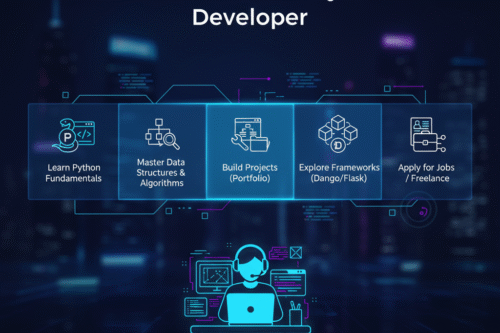🖥️ Modern Web Design Practices: Crafting User-Focused Digital Experiences
In today’s fast-moving digital world, web design is no longer just about looks—it’s about creating meaningful user experiences. Modern web design focuses on speed, simplicity, and engagement, ensuring visitors stay longer and interact more effectively with your content.
1. Mobile-First Design
With most users browsing on smartphones, designers now start with mobile layouts and then expand to larger screens. A responsive, mobile-friendly design ensures accessibility and seamless navigation on any device.
2. Minimalism and Clean UI
Cluttered pages are out. Modern websites use white space, clear typography, and intuitive layouts to help users find what they need quickly. The focus is on guiding attention rather than overwhelming it.
3. Fast Loading & Performance
Speed matters. Compressing images, optimizing code, and using Content Delivery Networks (CDNs) ensures your website loads in seconds—improving both SEO and user satisfaction.
4. Accessibility & Inclusivity
A truly modern design considers all users, including those with disabilities. Using proper color contrast, readable fonts, and keyboard navigation options makes your site welcoming to everyone.
5. Interactive & Dynamic Elements
Subtle animations, scroll effects, and micro-interactions enhance engagement. But the key is balance—motion should support usability, not distract from it.
6. Dark Mode & Personalization
Allowing users to switch between light and dark themes is now a trend that boosts comfort and user control—making your site feel modern and flexible.



